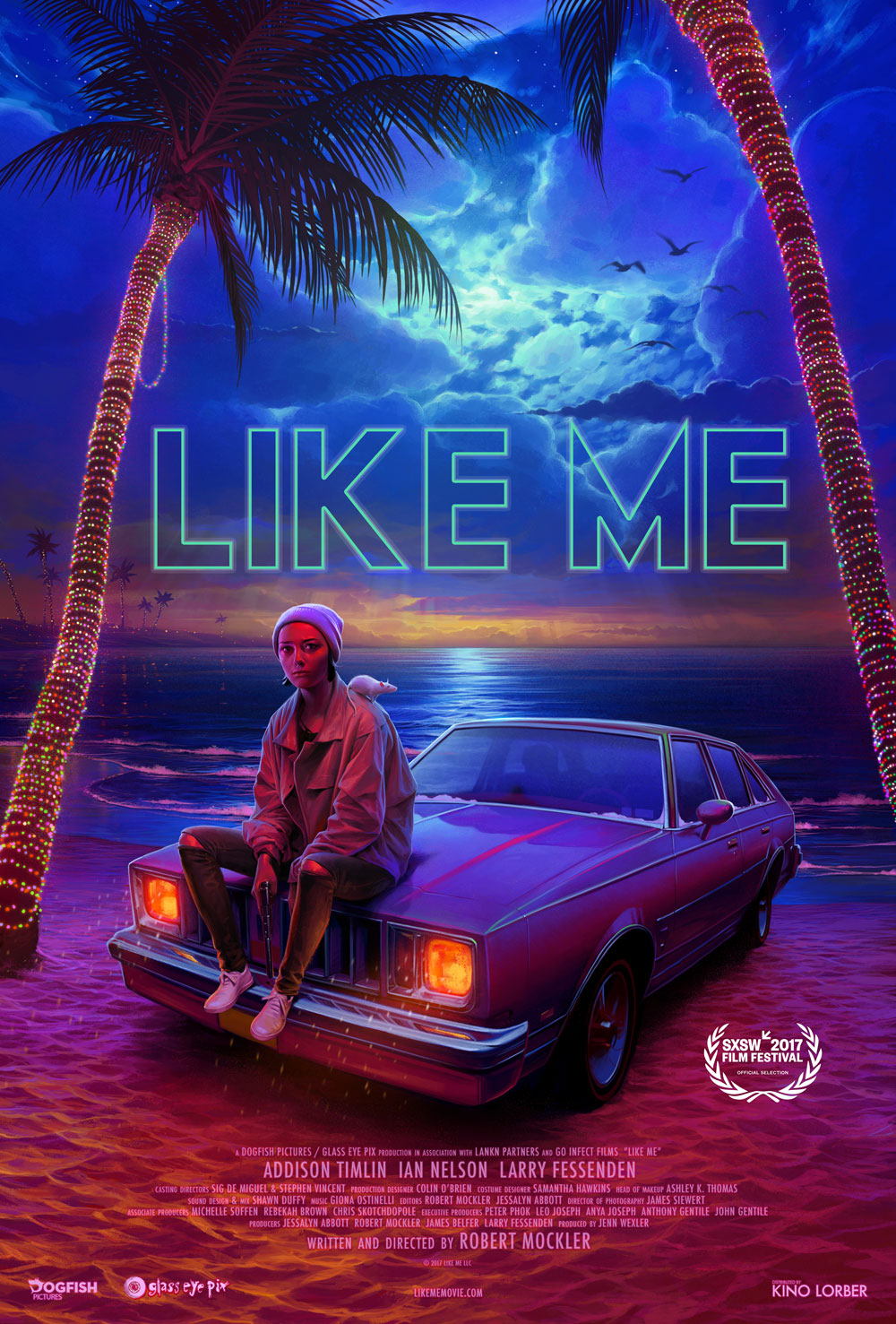In the vein of films like Unfriended and Tragedy Girls, Robert Mockler’s debut film, Like Me, explores the dark consequences of modern youth culture’s obsession with social media. Mockler provides a fiercely independent view of vacuous enthusiasm for the sake of peer validation. If that statement sounds pretentious, that’s because it is. In particular, Mockler used heavily stylized editing and cinematography focused less on storytelling and more on mood setting. The net result is a confusing, incoherent attempt at a fever dream-like narrative within what might have otherwise been a truly compelling story.
demonstrating the … narcissistic nature of modern social media culture in gruesome, gut-punching detail
That’s not to say the film is bad. In fact, Like Me offers plenty for fans and film buffs to enjoy. Mockler’s strong use of composition demonstrates ample skill behind the camera. His use of color could, one day, rival the likes of filmmakers like Nicholas Wining Refn (The Neon Demon). The film’s strongest assets, however, are the lead performances by Addison Timlin and Larry Fessenden. Clearly seeking cult status, the film tries, to a fault, to leave an impression, showing significant future promise for all involved. The camera work and editing choices invoke the desired response, albeit often at the expense of the story.
Fessenden delivers a career performance
Fessenden (Carnage Park, Psychopaths) delivers a career performance as Marshall, Timlin’s primary victim/companion. For her part, Timlin holds her own against the veteran actor. With four other upcoming films, including one as a young Hillary Rodham, Timlin is on the precipice of a breakout. As a duo, Timlin and Fessenden exhibit great chemistry as their dialogue is easily the highlight of the film. Like Me could end up being the birth of a superstar.
fiercely independent
Regarding the story, there really is very little. Mockler edited the film in a way that leaves the line between fantasy and reality up to the viewer’s imagination. Ultimately, this decision is simultaneously the source of the film’s strongest praise and criticism. The best advice here is to watch the trailer, as it is fairly instructive regarding the final product. However, be advised that Like Me fails to even make an attempt at being scary. Instead, the film succeeds by demonstrating the loneliness and desperation that follows narcissistic nature of modern social media culture in gruesome, gut-punching detail. While it will likely find its way to cult status, mainstream audiences looking for a straightforward narrative should probably stay away.
Like Me will be released theatrically on January 26, 2018, with a VOD release on February 20.

Like Me [Review]
Confusing
Trying, arguably too hard, for cult status, but at least an original and creative take on concepts already heavily explored in modern film.































